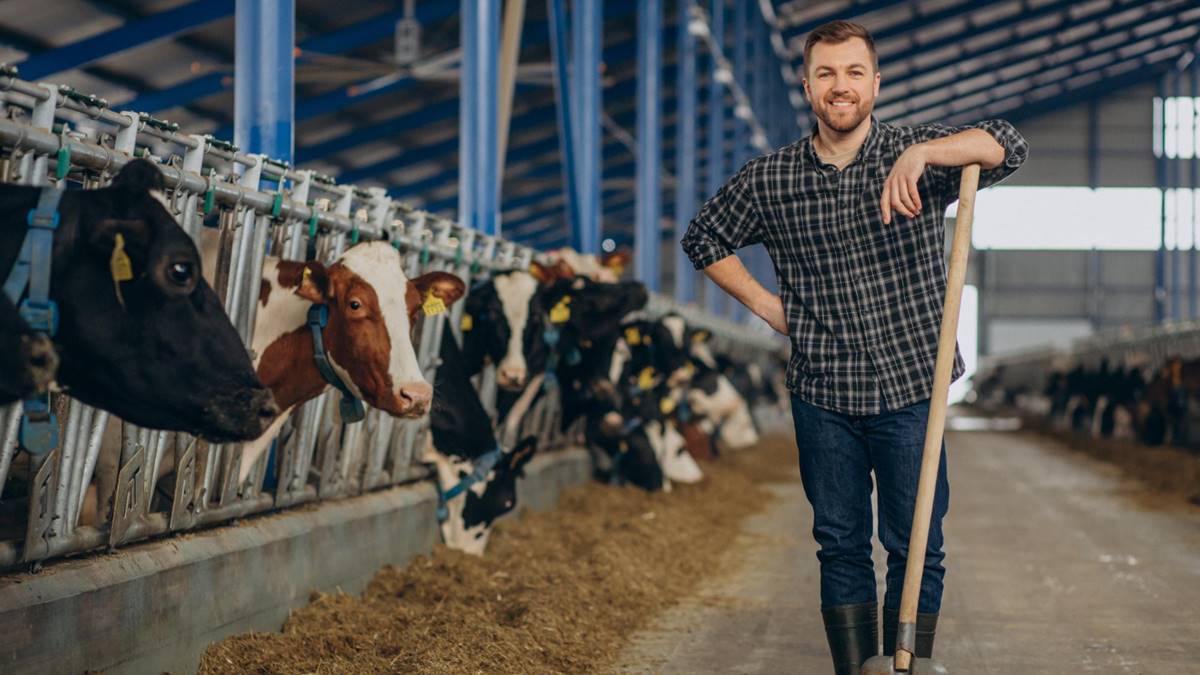An indispensable mineral in the nutrition of dairy cows, calcium plays an important role in their overall health, as well as in their milk production. Without ensuring a proper calcium intake for their cows, farmers may face problems like milk fever, poor milk yield and reduced reproductive performance in their dairy cows.
Here we explore some of the most important benefits of including calcium salt in the diet of your dairy cows:
- Improved milk yield and higher milk fat content
One of the main benefits of using calcium salt supplements is that it promotes improved milk production. Calcium is essential for milk synthesis, and cows that do not get enough calcium can experience reduced milk production. Calcium salts of long-chain fatty acids (CaLCFA) have been shown to improve milk yield by up to 10%. CaLCFA supplements are easily digested and provide a concentrated source of energy that can be used to boost milk production. Additionally, CaLCFA supplements have been shown to increase milk fat content, which can lead to higher milk prices for farmers.
- Improved overall animal health
Calcium is involved in many physiological processes in dairy cows, including muscle function and bone development. Supplementing the diet of dairy cows with calcium salts has several benefits for their overall health, since adequate calcium intake is essential for reducing the risk of digestive problems, as well as for developing strong bones, which can reduce the risk of fractures and lameness.
- Increased fertility and reproduction rate
Reproductive performance is very important when it comes to farms of dairy cows. Calcium is important for reproductive functions such as follicle development, ovulation and embryo implantation. Supplementing the diet of dairy cows with calcium salts reduces the risk of reproductive problems and improves fertility. Studies have shown that cows supplemented with CaLCFA have higher conception rates and shorter calving intervals than cows that are not supplemented with calcium.
- Reduced risk of metabolic disorders
Metabolic disorders such as hypocalcemia and ketosis are common in dairy cows, especially during peak lactation. Hypocalcemia, also known as milk fever, is a condition that occurs when cows do not get enough calcium to meet their needs. It can lead to muscle weakness, reduced milk production, and in severe cases, even death. Ketosis is a metabolic disorder that occurs when cows are unable to metabolize enough energy to meet their needs. This can lead to reduced milk production, reduced reproductive performance and other health problems. Supplementing the diet of dairy cows with calcium salts ensures that they have enough calcium to meet their needs.
But how can farmers ensure appropriate amounts of quality calcium for their dairy cows?
One of the most effective ways to provide optimal calcium intake is by including calcium salt supplements in the diet of their dairy cows. An excellent choice is the CAL+ calcium salt supplement from FoodGrid, which consists of calcium salts of long chain fatty acids, made from natural and non-GMO processed fatty acid distillate of palm reacted with calcium.

